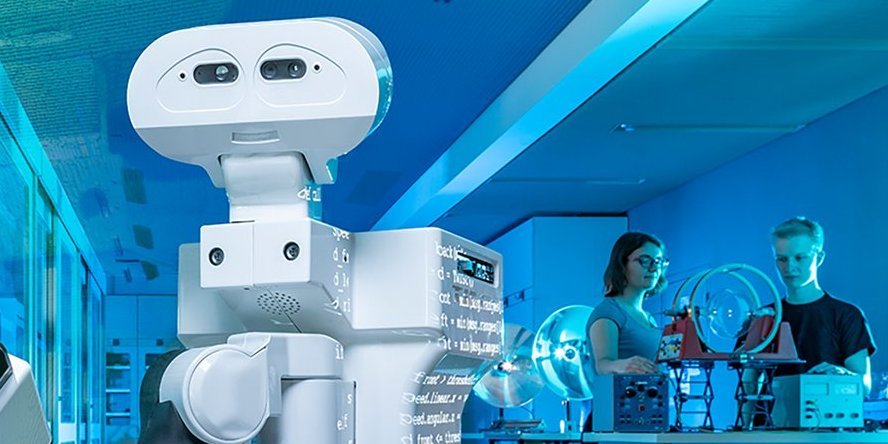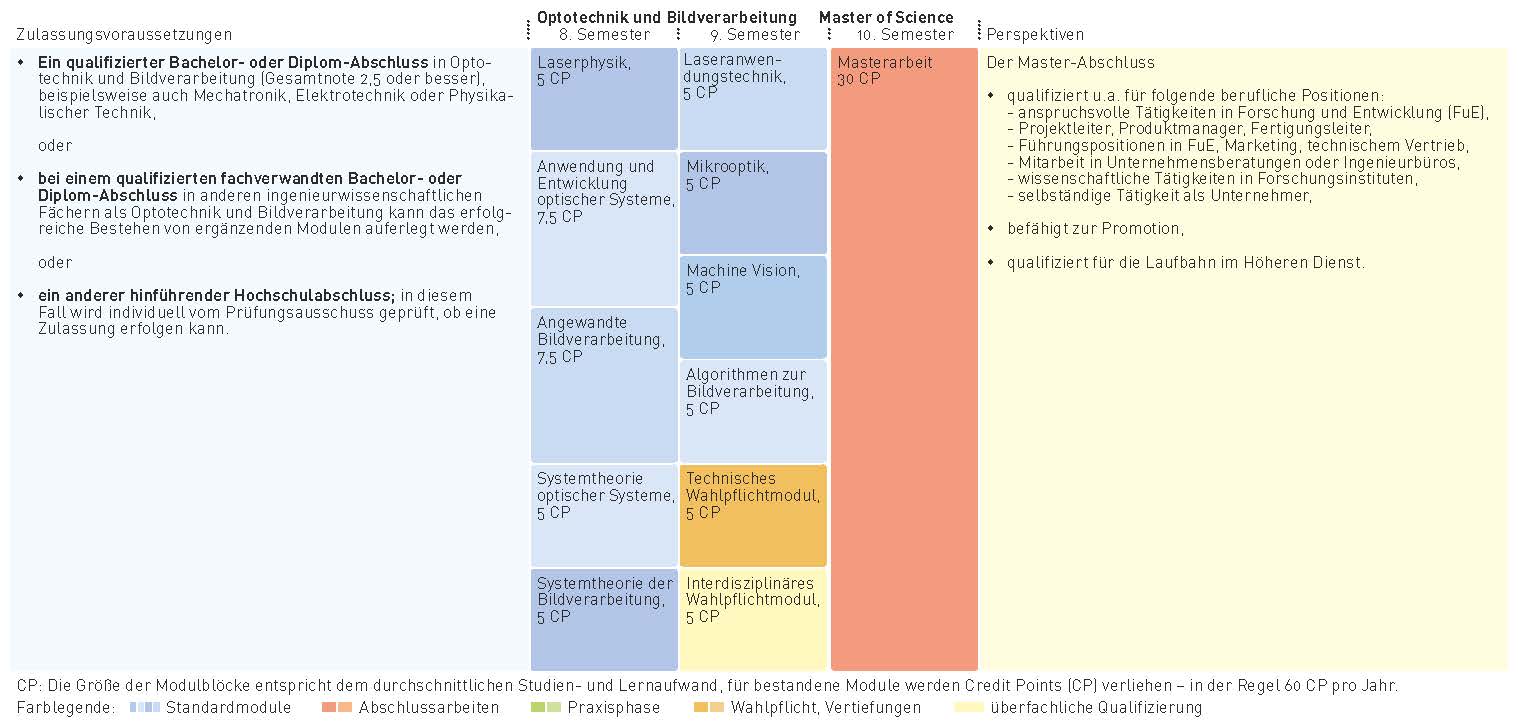
Optical Technology and Image Processing (Master of Science)
| Semester | 3 Semester |
| Darmstadt | |
| Winter semester/summer semester | |
| GER | |
| * | |
| yes |
Content
Cameras, lasers, optics and intelligent algorithms - these are the topics of the three-semester Master's degree programme in Optotechnology and Image Processing (OBV) programme, in which students acquire and apply sound and practice-orientated knowledge of photonics and machine vision. AI and innovative lighting teaches industrial plants to see and increases the sustainability of production processes. Seeing robots help people with dangerous work and alleviate the care crisis by supporting carers. In autonomous driving, laser sensors and laser sensors and image processing enable the vehicle to perceive its perceive its surroundings. Medical image processing is an important pillar of modern diagnostics and improves our quality of life. Optical sensors help us to better understand and counteract climate change. More detailed information on the course of studies can be found on the website of the Faculty of Mathematics and Natural Sciences.
Perspectives
The unique Master's degree programme OBV offers outstanding career prospects in the growing field of optical technologies. It is possible to work in both industry and research. As the skills acquired in OBV enable a productive entry into almost any industry, the prospects on the labour market are excellent. Graduates are sustainably qualified, take on challenging engineering positions in companies or assume management responsibility.
After a Master's degree, there is the possibility of a doctorate. The central contact point is the Graduate School.
Structure
The consecutive Master's programme OBV is divided into three semesters divided into three semesters. In the first two semesters, the programme sub-areas are deepened theoretically and practically. In the technical elective module offers attractive opportunities for specialisation. The study location is Darmstadt. On one day of the week special events take place in Friedberg one day a week, e.g. laboratory laboratory exercises on laser material processing. The third semester is reserved for the Master's thesis, which is written in industry,
in industry, in a research institute or in a research project at the university. A detailed presentation of the course contents can be found in the module manual (german).
Dual study programme
Optical Technology and Image Processing (M.Sc.) can also be pursued as a dual study programme. Further information can be found on the website of the faculty.
*Access
A prerequisite for the three-semester Master's programme in optotechnology and image processing is a relevant Bachelor's degree (overall grade 2.5 or better), for example, also in mechatronics, electrical engineering or physical engineering. If necessary, a committee decides on admission. Applicants are also expected to have a thorough knowledge and understanding of mathematics, physics and programming techniques. Knowledge of electronics, signal processing and precision engineering is also required, as is a knowledge of English. Applicants with a six-semester Bachelor's degree are prepared for a smooth entry into the Master's programme in a transition semester at the Hochschule Darmstadt. A detailed description of the admission requirements can be found in the Special Provisions of the Examination Regulations (German).
